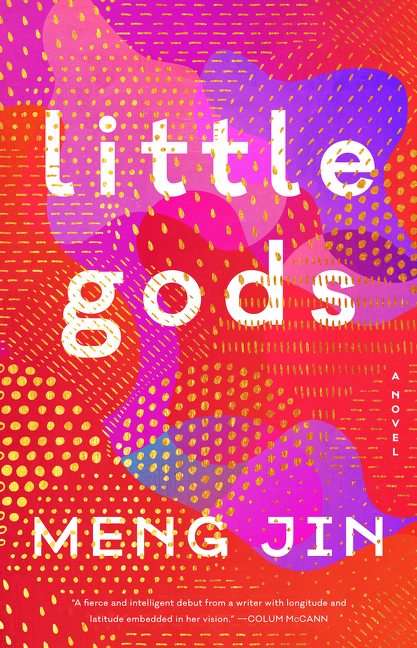I can't remember who recommended LITTLE GODS to me or if I just saw it on a BuzzFeed list somewhere. It's that type of book-- the "smart," existential kind of book that you're supposed to nourish your brain with like it's the literary version of cruciferous vegetables. As someone who basically lives on the literary version of candy, this was a departure point for me, but the premise sounded interesting and when the book went on sale not too long ago, I ended up buying it.
LITTLE GODS is a story told in negative space. The main character is a Chinese physicist named Su Lan, but her story is told by people who know her: Yongzong, her husband and the father of their child; Zhu Wen, the neighbor in the small village she lived in before she left for America; and Liya, her daughter. When Su Lan dies, Liya seeks out her story, but the book actually begins with Liya's birth, with Su Lan being described by a nurse in the hospital as a beautiful, wealthy-looking woman who is a bit wild-eyed, asking strange questions about time.
I'm not sure how I feel about this book, honestly. Reading this book is a lot like being depressed (I say this as someone with depression); it's so bleak and inevitable, and all of the characters in this story are pretty awful. Time, in this book, feels like a rubberband: stretchy but finite. Watching these characters push against their constraints, only to meet the inevitable boundaries of what it means to be mortal is sad and devastating to see. Jin strips away the layers from her characters, portraying them in all their flawed and stinking glory, as if they are rotten onions on a shelf. On the one hand, that raw honesty is fascinating to see, because it's so unusual, but on the other hand, ouch, man. Ouch.
The most interesting portions of this book to me were about Yongzong's messed up courtship with Su Lan, and Liya's obsessive search for her family history. Those passages were amazing. The beginning of the book, however, is pretty boring. Zhu Wen's section is interesting because of how it portrays the changing landscape of China, and how it affected low income people, but it went on way too long and I actually considered DNF-ing several times before I got to the halfway point. This is one of the rare books where I'm actually really glad I stuck with it because the prose is beautiful and it has some fascinating ideas, and portions of it truly feel like a love letter to science. But the pacing is often off, and the experimental writing style without quotation marks for dialogue is hard to follow, especially with the long and complex paragraph structures. It's also, as I mentioned before, kind of a downer.
I'd recommend this to people who enjoyed books like THE LAST STORY OF MINA LEE and THE PERFECT WORLD OF MIWAKO SUMIDA, as both of those stories also have that sort of negative space story-telling format where the main character themself is actually the focal "mystery."
3 to 3.5 out of 5 stars

No comments:
Post a Comment
Note: Only a member of this blog may post a comment.